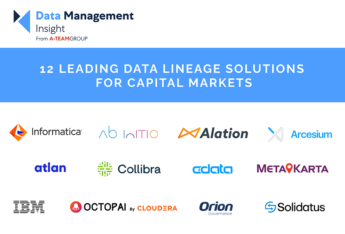A-Team Insight Knowledge Hub DMI The latest content from across the platform
7Rivers Q&A: Enabling Modern Data Processing
Milwaukee, Wisconsin-based 7Rivers gives its clients the tools to draw actionable insights and real-world applications from their data. A-Team Group Data Management Insight spoke to Jessica Emhoff, Vice President of Marketing, about the company and how it is empowering financial institutions. Data Management Insight: Hello Jessica. Can you tell us a bit about how 7Rivers…
UK Equity Consolidated Tape and EU MiFIR – Two Data Regimes, One Control Problem
The UK’s proposed equity consolidated tape is framed as a response to long-standing fragmentation in equity market data. By aggregating post-trade information and an attributed best bid and offer across trading venues, the tape is intended to provide a single, standardised view of UK equity trading. At the same time, transaction reporting under the Markets…
Xceptor Accepted into Microsoft Agentic Launchpad Programme
Xceptor has joined the Microsoft Agentic Launchpad to accelerate the development of artificial intelligence systems. The programme, created in collaboration with NVIDIA and WeTransact, provides resources and infrastructure to deploy autonomous agents at scale. The provider of data automation for capital markets was one of 13 innovators selected from a pool of more than 500…
Snowflake Retools Cortex to Offer FSI Tailored AI Capabilities
Snowflake’s Cortex AI features has been enriched to provide financial services companies with agentic artificial intelligence capabilities honed to their specific needs, the first of a planned suite of editions focused on individual industries. Cortex AI for Financial Services will feature all the functionality of the platform’s Cortex features but will offer clients large language models that…
New Bloomberg US BDC Index Offers Insight into Private Credit
Bloomberg has launched a new index that brightens the light that is bringing transparency to often opaque private markets, this time with a focus on one of the sector’s more specialised corners. The New York-based data behemoth’s US BDC Aggregate Eligible Index (Ticker: BDCUSAGG) gives investors a unique view into how bonds issued by the…
Free from Fear and Lock-In – The Efficiency Jackpot Back-Offices in PE can Deliver
By Gareth Hewitt, Co-founder and CEO, LemonEdge. Private equity firms and fund administrators face heavier workloads and closer scrutiny than ever before, yet many back offices still run on systems built for a past era, when there was less expectation that services needed to be delivered quite as regularly. Teams recognise that sticking with these…
The Data Year Ahead: AI Comes of Age, Private Markets Become Less Opaque
2026 is set to be the year in which the evolutionary changes hinted in the past 12 months become established within the data landscape, according to expert predictions. Artificial intelligence will mature into the game-changing innovation it has promised for years and private markets, whose growth in importance in the past few years has been…
Why Outsourcing is Shifting from Cost Centre to Being a Catalyst for Transformation
By Sarva Srinivasan, Managing Director, NeoXam Americas. For decades, outsourcing across all industries has been synonymous with trimming the back office, streamlining headcount, and delegating so called non-core processes to third parties. But in the world of finance, the ground is well and truly shifting. As the asset management and servicing industries face mounting multi-asset…
Twelve Leading Data Lineage Solutions for Capital Markets
The ability to trace the journey of data from its origin to its final report is no longer a luxury but a regulatory and operational necessity. As firms grapple with the intensifying requirements of regulations such as BCBS 239, GDPR and the shifting landscape of MiFID II, the “black box” approach to data management has…
Data as a Product: From Collection to Control in Modern Markets
For much of the past decade, data strategy in capital markets focused on accumulation. Firms invested heavily in market data feeds, alternative datasets, data lakes, and analytics platforms. Yet despite this abundance, many organisations have still struggled to answer basic operational questions with confidence, particularly during periods of market stress. The problem is no longer…









